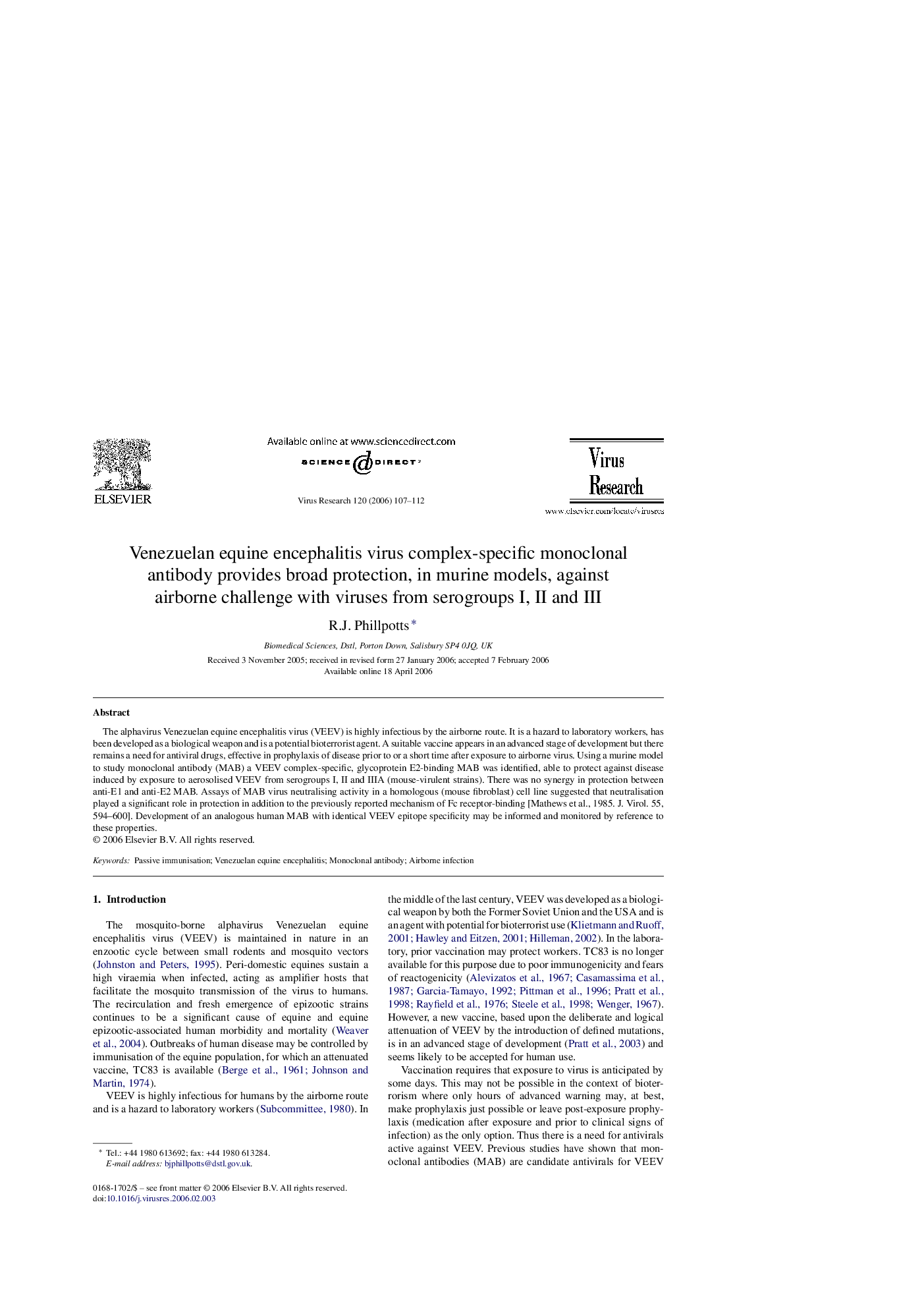| کد مقاله | کد نشریه | سال انتشار | مقاله انگلیسی | نسخه تمام متن |
|---|---|---|---|---|
| 3431220 | 1594407 | 2006 | 6 صفحه PDF | دانلود رایگان |

The alphavirus Venezuelan equine encephalitis virus (VEEV) is highly infectious by the airborne route. It is a hazard to laboratory workers, has been developed as a biological weapon and is a potential bioterrorist agent. A suitable vaccine appears in an advanced stage of development but there remains a need for antiviral drugs, effective in prophylaxis of disease prior to or a short time after exposure to airborne virus. Using a murine model to study monoclonal antibody (MAB) a VEEV complex-specific, glycoprotein E2-binding MAB was identified, able to protect against disease induced by exposure to aerosolised VEEV from serogroups I, II and IIIA (mouse-virulent strains). There was no synergy in protection between anti-E1 and anti-E2 MAB. Assays of MAB virus neutralising activity in a homologous (mouse fibroblast) cell line suggested that neutralisation played a significant role in protection in addition to the previously reported mechanism of Fc receptor-binding [Mathews et al., 1985. J. Virol. 55, 594–600]. Development of an analogous human MAB with identical VEEV epitope specificity may be informed and monitored by reference to these properties.
Journal: Virus Research - Volume 120, Issues 1–2, September 2006, Pages 107–112